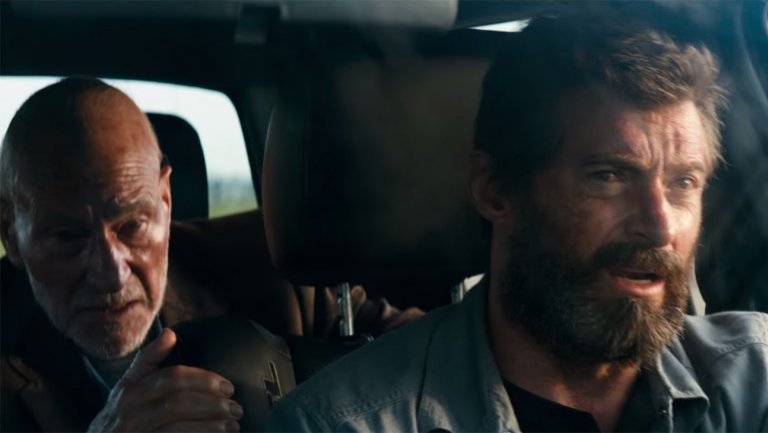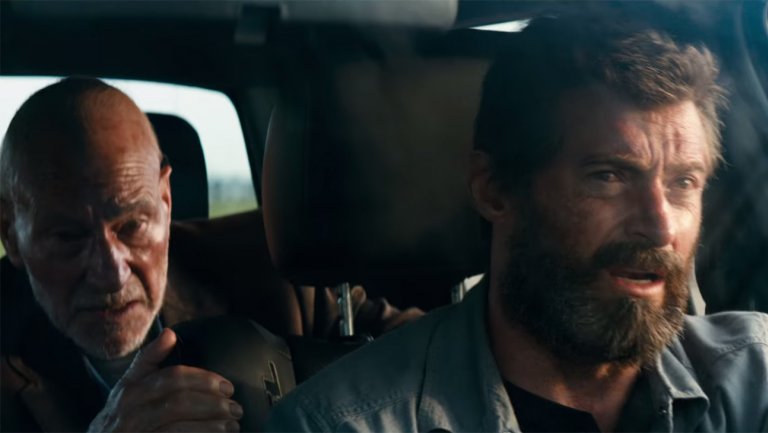Logan gets a lot right about superhero movies. It makes its central conflict small-ish in scale, rather than putting the fate of the world in jeopardy, but still establishes very real stakes. It eschews a parade of cameos in favour of focusing on two or three characters. It knows that, while it may be based on comic books, it is a movie, and wears its cinematic influences proudly. It uses an R-rating to make its themes and motifs more mature rather than cruder. And it trusts its audience to be smart enough to be able to fill in a fair number of blanks. With all of this together, it comes close to joining The Dark Knight in the lonely class of great superhero movies that can be talked about without the “superhero” clarification. But while its aims at being a neo-Western and a meditation on purpose are admirable and far from wholly unsuccessful, Logan is undone in a similar way to its protagonist. Just as Logan the character cannot escape that he is The Wolverine and the violence that entails, Logan the film cannot entirely escape that it is an X-Men movie and the silliness that comes with the territory.
Just to get the complaints out of the way, the villains really let Logan down at the end of the day. Oddly, the villain that shows up early, Boyd Holbrook’s cyborg mercenary Donald Price, is not the problem at all. Holbrook chews scenery but in a way that adds nicely to the slightly post-apocalyptic vibe the movie has going (more in the category of the original Mad Max rather than Road Warrior or Fury Road, but the influence is there), and normal mercenaries for brief moments feel like valid threats, as Logan’s healing ability has slowed thanks to age and adamantium poisoning. But the true big bad turns out to be an uninteresting evil scientist, feeding a conspiracy-theory big-government angle that worked well in previous films but falls flat here. I suppose that government persecution works when the metaphor relates to persecuted communities as it does with Xavier’s School for Gifted Children, but seems more extraneous here. The reveal of the real physical threat late in the film is both silly enough to ruin the grounded tone the film worked to maintain, and thematically rather blunt (spoiler: man vs. self literalized). Additionally, while it’s thematically necessary that Logan allows blood to be spilled, it has plenty of scenes of children engaging in gory violence played not for laughs or horror, but rather excitement, which doesn’t quite gel.
But there’s a lot for fans and non-fans to like here. Jackman has made clear that this is his last time wearing the claws, and he also visibly wears the struggles of the character over the past eight appearances. Charles Xavier is also provided a new angle for the first time in ages, as a degenerative brain disease takes root in what is noted as “the most powerful brain in the world”. No other returning characters appear, allowing for a fantastic degree of focus. The collection-of-oddballs road trip consisting of Logan, Xavier, and mysterious fugitive Laura powers the films occasionally fantastic middle third, especially a brief respite of normalcy that serves as a poignant character beat until that silliness shows back up. Logan has the bones (or adamantium skeleton) of a bona fide classic, but while it serves as a fantastic sendoff to potentially both the cinematic Wolverine and Xavier, it doesn’t transcend its origins in the way it blatantly wants to.

B-
Logan (2017)
Directed by James Mangold
Starring Hugh Jackman, Dafne Keen, Stephen Merchant, and Patrick Stewart
Rotten Tomatoes (92%)
